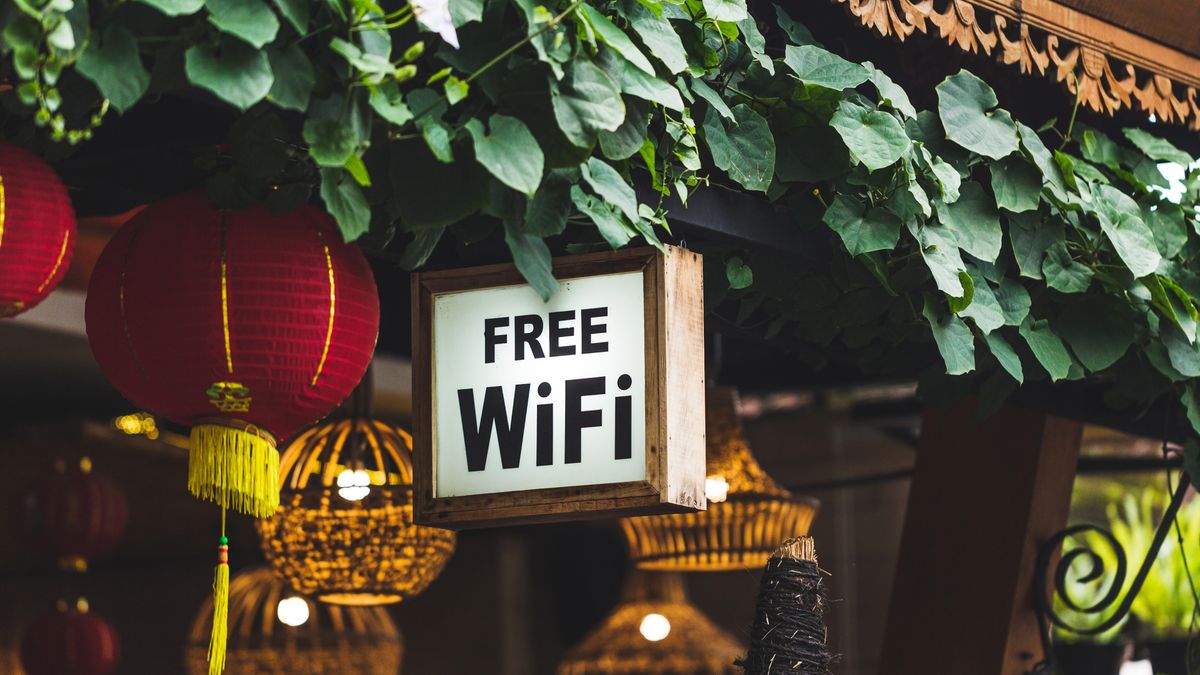protect the benefits, risks and privacy
When you are on the road, many places allow you to connect your laptop or smartphone via public Wi-Fi networks. That can be very useful for working or for streaming movies and series. But what we should not overlook are the real risks of public Wi-Fi networks.
Contents
Public Wi-Fi
We don’t need to tell you much about the benefits of public Wi-Fi. Thanks to a free WiFi network, for example at the airport, you can easily use the internet. Your phone does not have to intervene as a hotspot, so that your data bundle does not go up in smoke.
However, what many people sometimes take too little into account is the fact that they take a risk every time they connect to the public network. As the internet security company ESET describes, a hacker can place himself between your laptop and the Wi-Fi router. It can fully mimic the features of the public network, so you don’t connect to the wifi of the local McDonald’s or Starbucks, but to the hacker’s network.
These are the risks
The consequences of this can be very far-reaching. For example, the hacker can intercept a lot of your private data and it is completely out of the question to exchange identity data or bank details if you are connected to a public network? Do not make transfers and do not use services such as DigiD.
In addition, there is also the risk of getting malware on your device. The cybersecurity company Kaspersky describes how a hacker can, for example, show a pop-up window on your phone or laptop, with a fake link with which you download malware. That malware can come in all forms. For example, on PC there is ransomware, which is a variant where all files on your device are encrypted. The hacker demands a hefty sum of money to unlock them for you. Once you’ve been the victim of such an attack, there’s little to nothing you can do about it.
This is how you protect yourself
There are a number of things you can do to protect yourself when using a public network. The most important tip we can give is to use a VPN when connecting to a public network. Such a service encrypts your connection, protecting you against hacker attacks or invasions of your privacy.
If you connect to a public network and still don’t use a VPN, you are at risk. There are a number of things you can do to limit that risk:
- Make sure you turn off folder sharing in your PC’s settings when connecting to a public network.
- Only use websites with an HTTPS connection. You recognize it by the icon of the key in the address bar of your browser. HTTPS already provides a limited degree of protection when you log in to websites.
- Read the terms and conditions of a public network. Sometimes you literally see that providers ask for permission to collect information about your surfing behavior and share it with third parties.
- Forget networking. If you don’t use a public network anymore, choose to forget the network on your devices so you don’t accidentally connect later
- Prepare yourself so you don’t need public networks. For example, do you have to wait a long time at the airport? Then make sure you have downloaded Netflix series in advance so that you can watch them offline.
Do you use public networks more often? You may have been the victim of malicious people who abuse such a free network. Do you already have a VPN? Let us know in the comments.
Do you have any tips or ideas?
Androidworld is the largest Android community in the Netherlands and Belgium. So we do this together! Do you have a question about the topic we discuss during the theme week or do you have ideas or tips? Let us know in the comments below this article. You can also email us at this email address or leave a message on Facebook, Instagram and Twitter. You can also ask us questions via this Telegram group. Would you rather send one of the editors a tip? Then you can!



